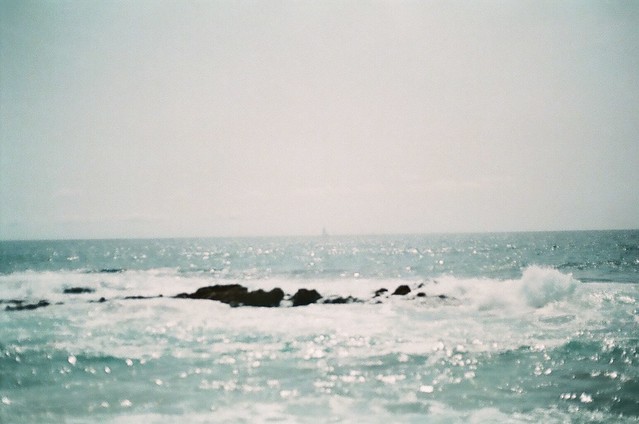Lessons from Boys
He showed her that even in grey and a turtleneck, she was pretty. She would dance down the halls after seeing his smile, after seeing that he would drive three hours in a tiny truck with a love-struck couple for her. He taught her the meaning of flirting, although she didn’t realize it until later, when she needed it. His hair was red and ginger with a smile to match, and she would fall asleep sometimes dreaming of his grin. She didn’t realize that they were antics meant for middle school, not college. His attentions flustered her, and she waited each day for word from him, not able to sleep soundly if he didn’t say goodnight. She asked her friend one day, frustrated and angry, begging her to explain why boys had to exist. Yet he existed fervently. Once he grabbed her around the waist and pulled her towards the edge of the mountain, teasing that he would throw her over the side. She didn’t realize it was the edge. She only felt the simplicity of his cold, winter-warmed hands against her cheeks by the fire in the morning, the smell of wood smoke in the air, his eyes staring into hers, smiling.
And when they fell out of touch, as winter loves and youths tend to do, she kissed the love of her life. She first met him when his hand touched her mother's swollen belly. She had loved him for nearly as long. He kissed her on a summer night when the tops of her breasts were warm against the night pressing on the window panes. When she was seven, she had built a castle out of game pieces on his kitchen, and then she had laughed about it in his bed twelve years later. She spent one night in his arms, and one fervent morning trying to save the memory of what he was. She wouldn’t see him again, but his bed was where she first heard, “You are beautiful.”
One night in an attic of a house hidden in a street in Germany, she played a song that was too soft to reach the rafters. And he looked at her, a question, a half-smile on his lips, as if he couldn’t believe she had chosen this song for him. You’ve got me wrapped around your little finger—and she did, if only for a while. Not half a year later, he would meet a girl who was round and full and looked like a woman.
And when they fell out of touch, as winter loves and youths tend to do, she kissed the love of her life. She first met him when his hand touched her mother's swollen belly. She had loved him for nearly as long. He kissed her on a summer night when the tops of her breasts were warm against the night pressing on the window panes. When she was seven, she had built a castle out of game pieces on his kitchen, and then she had laughed about it in his bed twelve years later. She spent one night in his arms, and one fervent morning trying to save the memory of what he was. She wouldn’t see him again, but his bed was where she first heard, “You are beautiful.”
One night in an attic of a house hidden in a street in Germany, she played a song that was too soft to reach the rafters. And he looked at her, a question, a half-smile on his lips, as if he couldn’t believe she had chosen this song for him. You’ve got me wrapped around your little finger—and she did, if only for a while. Not half a year later, he would meet a girl who was round and full and looked like a woman.
Sex. Not a fragment nor moment of beauty, but a single moment of feeling. Of realizing that it’s not always about giving away under the moment, but experiencing every tangible feeling and realization and thought in a single moment to make the experience fuller, bolder, shockingly dirty.
Car lights through the rivets of a bridge, or the flickering of a liking for him. Their laughter is ridiculous, and she wonders often if the sound of it means anything to him. She forgets what it’s like to feel attractive, because she can’t stop wondering who she is. If he sees her as this, and all these before him have seen her as this and this and this…what is she.
She lies in bed some nights, scared because she no longer believes in love.

